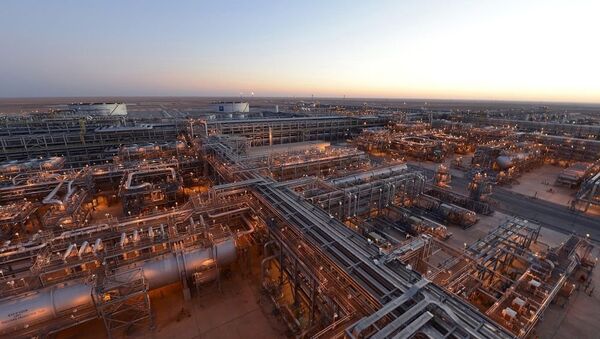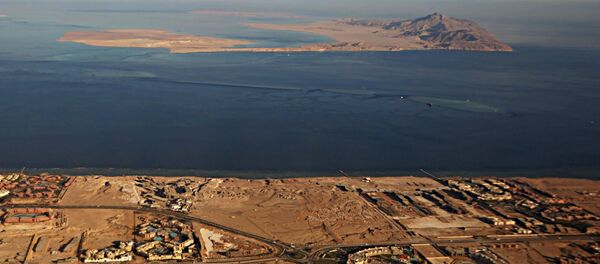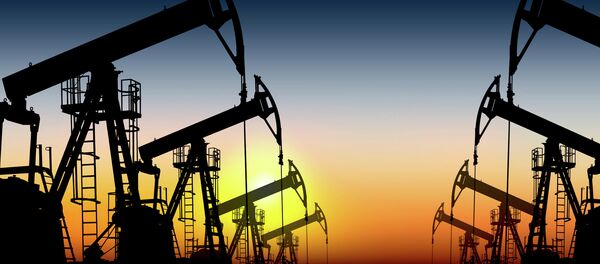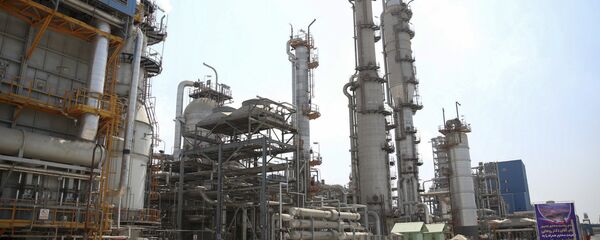Saudi oil and gas giant Aramco was revealed to be the world's most profitable company, with accounts revealed ahead of the firm's planned international bond issuance showing revenue of $224 billion and a net income of $111.1 billion, including $86 billion in free cash flow by the end of 2018.
Aramco's Rise and Rise
Dr. Thomas O'Donnell, a veteran analyst on energy and geopolitics, says it's not hard to explain the source of Aramco's profitability. "The huge size of the company is much of the reason for the size of their profits, and this is of course important for the financial and geopolitical impacts for the Saudi state, and the economies of scale available to Aramco," O'Donnell noted in a written commentary for Sputnik.
Moreover, the observer pointed out that Saudi Arabia has the second-largest oil reserves in the world, and the comparative ease with which they can be extracted "leads to some of the highest rates of oil rents over and above the actual costs of exploitation and extraction."
Saudi Aramco EBITDA is $224B so KSA gets ~ $100B on taxes + rents, fees, licenses, tariffs. So now you have an idea about Saudi Arabia’s revenue. #OOTT #SaudiArabiahttps://t.co/cIGNaFFlQk
— Ellen R. Wald Ph.D.🛢 (@EnergzdEconomy) 1 апреля 2019 г.
Francis Perrin, a senior fellow at the Rabat, Morocco-based Policy Centre for the New South and the French Institute for International & Strategic Affairs in Paris, echoed O'Donnell's sentiment about Aramco's reserves and its "lowest in the world" production costs, adding that it is not exactly unusual for energy companies to enjoy massive profits. Perrin recalled that prior to the relatively recent rise of the tech giants, it was ExxonMobil that enjoyed the status of being the world's most profitable company, with the firm's profits reaching a whopping $45 billion in 2012.
"No other national oil company can today really compete with Saudi Aramco in the oil sector. As far as the largest international oil companies are concerned, their oil and natural gas reserves and production are much smaller. So far there is only one Saudi Aramco in the world and this situation will not change overnight," Perrin stressed.
Merging Interests
Asked to comment on last week's announcement by Aramco that it would buy a 70 per cent stake in Saudi Basic Industries Corporation, a major global producer of petrochemicals in its own right, for $69 billion, international oil economist Dr. Mamdouh Salameh noted that this seemed like good news for Riyadh and for Aramco. "The merger creates economies of scale and makes Aramco a fully integrated company," he explained.
"Moreover, it makes a lot of business sense. The petrochemical industry is one of the world's fastest growing industries and the second biggest consumers of crude oil after transport. By exporting part of its crude oil as petrochemical products as Russia does, Saudi Aramco will not only be helping in the diversification of the Saudi economy, but will also be enhancing Saudi Arabia's revenues from oil," Salameh noted, estimating that the purchase will allow Aramco to essentially double its refining capacity from 4.9 million barrels per day (mbd) today to 8-10 mbd by 2030.
Limits to Growth?
So in 2017, the Saudi gov started reimbursing Aramco for providing subsidized hydrocarbons (they call it “equalization”). In 2018 the gov paid Aramco $40.7 BILLION in equalization. #OOTT #Aramco #SaudiArabia
— Ellen R. Wald Ph.D.🛢 (@EnergzdEconomy) 2 апреля 2019 г.
This is why the gov NEEDS to end fuel and energy subsidies.
"The fact that Saudi Arabia's proven reserves remained virtually constant year after year despite sizable annual production and a lack of major new discoveries since 1965 is due to the Saudis increasing the oil recovery factor (R/F) and the oil initially in place (OIIP) to offset annual production. The Saudis have been declaring an R/F of 52 percent or even higher when the global average is 34-35 percent. They have also increased the OIIP from 700 bb to 900 bb on the basis of Saudi Aramco projecting new discoveries which are yet to be [found]," Salameh explained.
No Hurry for IPO
According to Francis Perrin, Aramco's financial position is strong enough that an IPO won't have a major impact for Aramco's cash flow status, but would increase the state's revenues, and even more importantly, "help to finance the diversification of the Saudi economy, which is a priority of the Crown Prince," and his Vision 2030 program. "And it would be a way to demonstrate that Saudi Arabia is open for business and for foreign investors," Perrin said.







